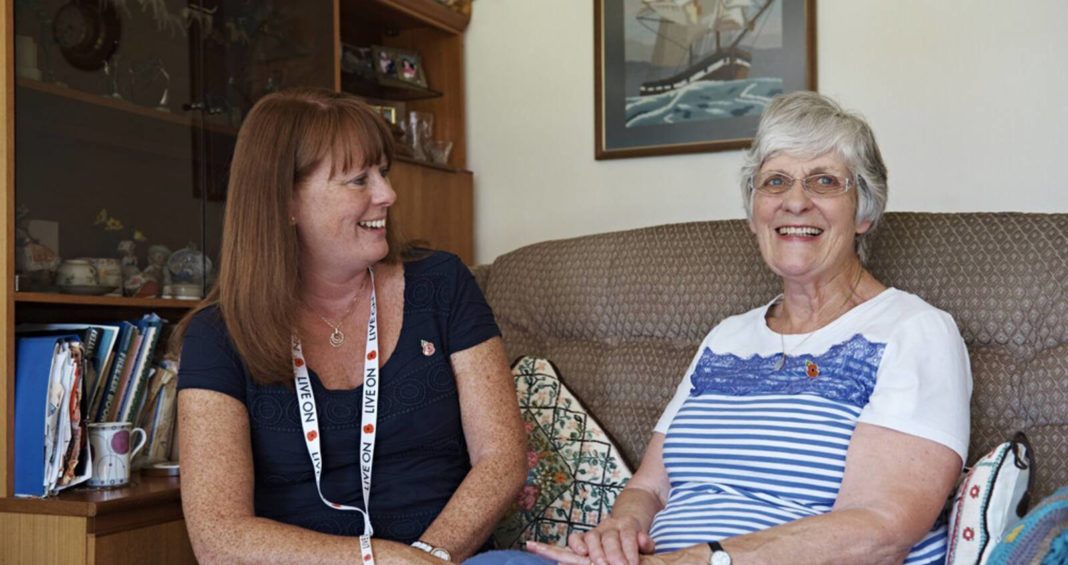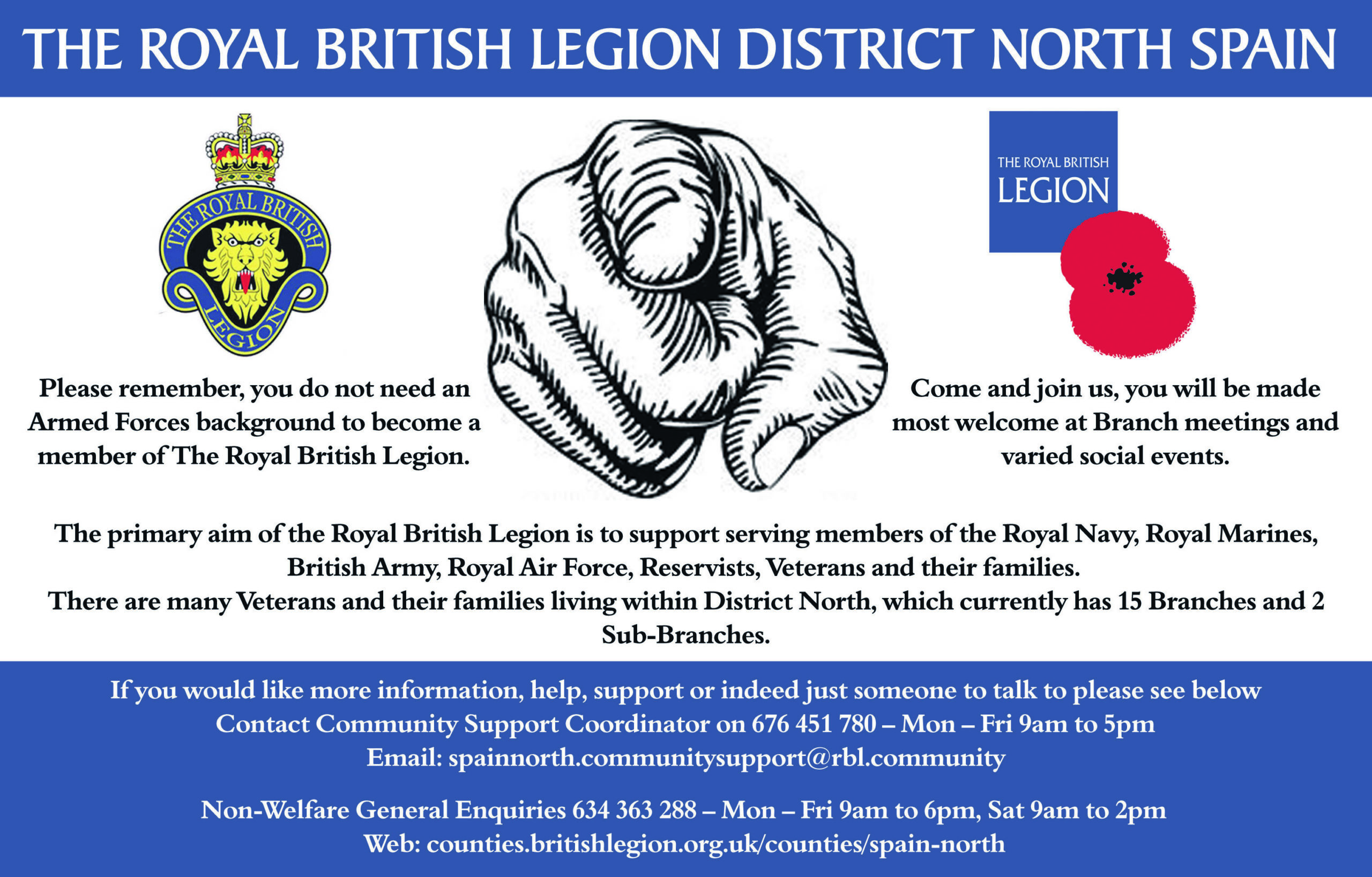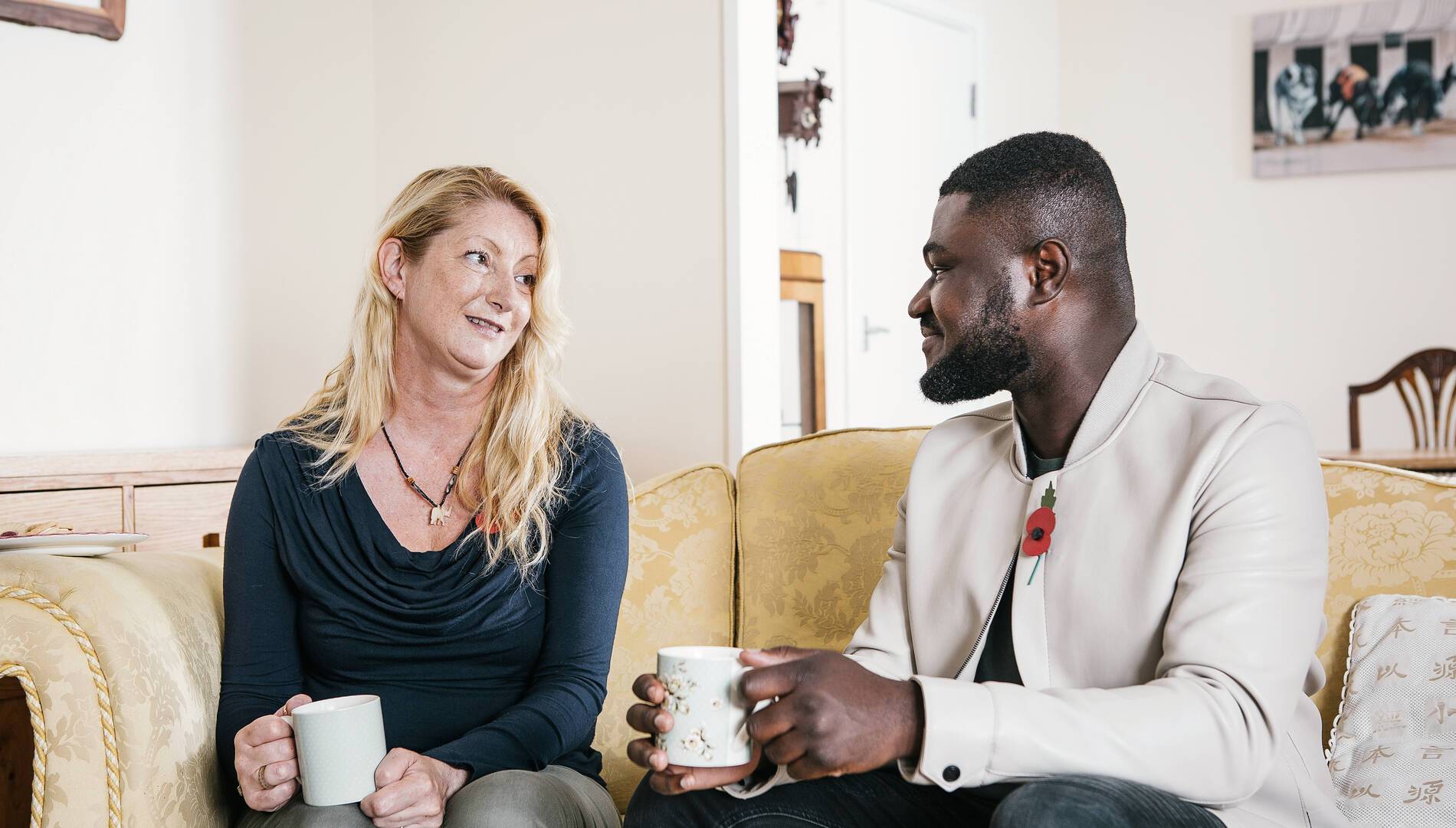By Susan Shaw
I am a case worker for the RBL and have been for the last 5 years. Our service is totally volunteer based, with a Co-ordinator heading up the team who allocates the cases to the case worker.
How does the co-ordinator know who needs help? It depends largely on information provided by RBL branches about the people in need, in their community. Calls are also made by the general public to the Co-ordinator and she also receives information via UK based staff where local people in Spain call the UK Call Centre number.
Information is also passed via the consulates and other charities, with whom the RBL work.
Whilst the RBL support is focussed on Veterans and their families, support in the form of information and guidance can also be offered to members of the general public.
Once the cases are allocated, there is a 48 hour requirement to follow it up with the person in need; however in these difficult times of the Covid -19 pandemic, much of the work is carried out over the phone or via email. If this is difficult because of age or infirmity, a visit will be organised although the case worker has to obey the rules with people not in their ‘bubble’: wearing face masks, using sanitiser, sitting outside where possible and maintaining a social distance.
The information gathered is to ensure the person seeking the support obtains the right sort of help, perhaps funding for a wheelchair or a hospital bed, but once the caseworker visits, he or she may notice other things which would help the person to remain independent:
It could be a shower chair, with a commode facility, where the person can be wheeled to the toilet or the shower, or a rise and recline style bed.
While the caseworker is talking to the individual, he/she may notice that the person’s teeth do not fit well, making speech difficult or perhaps they are hard of hearing:
The caseworker will normally ask to see the kitchen and the bathroom, as these are areas which may be refurbished so that the person can more easily keep themselves clean and manage meal preparation more effectively. New white goods may also be sourced, or a wet room created.
Other equipment that enables mobility could include a stairlift, wheelchair, mobility scooter:
Support could include repatriation to a care facility in the UK or support to gain qualifications to earn a living, or in the case of people in prison, visits to ensure that they are able to speak English to someone and gain support in terms of clothing or books in English.
Assistance may also be offered for funerals and where requested, a standard bearer will attend.
For vulnerable people living alone, we work with Cruz Roja to support their pendant alarm system, so that if the person falls or feels unwell, they can talk to someone at Cruz Roja, in English, and if necessary, an ambulance will be sent to their home.
Help may also be given to complete the Attendance allowance forms or the Personal Independence Payment made by the UK, or to register with social services, in Spain.
There are many other ways in which people have been helped and during this period of Remembrance, it is important to continue to support the RBL with donations, so that this work may be carried out, As things stand in Spain, now, we will need financial support from the UK, for the first time in December or early in the New Year. The money raised in Spain stays in Spain for supporting UK veterans who have fallen on hard times. This year has been a difficult time in terms of fund raising, as we have been unable to host social events, as we normally would.
We are also seeking more case workers, so that our work may continue. Full training will be given and a period of mentorship will support the new caseworker. If you feel that you have time to help us to continue this work, then please call the Co-ordinator on 0034 676 451 780







